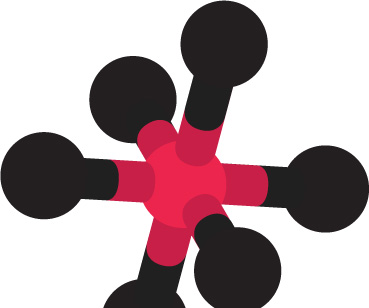The data-driven conversion optimization guide by CXL
Written by Peep Laja, founder of CXL
This expert guide will help you
- Master a systematic approach to conversion optimization
- Learn how to conduct user and conversion research
- Win more A/B tests and get a higher impact per successful experiment through conversion research
- Be able to improve the conversion rate and revenue of any website
Conversion optimization is a process.
Amateurs follow best practices and don’t know where to begin. Experts follow frameworks and processes.
This expert guide will teach you the process of optimization.

If you can’t describe what you’re doing as a process, you don’t know what you’re doing.
— W. Edwards Deming

What is conversion optimization?
Conversion optimization is a systematic way to convert browsers into action takers (leads, buyers). It’s about making more money and growing the business without investing additional resources into acquisition.
In order to improve your conversions through optimization you need a conversion research process. Research that tells you where are the problems, what the problems are and why those problems are problems to begin with.
You can’t improve your site much just by looking at it. You need to start by asking business questions about user needs and behavior, you need to measure everything people are doing. The data that you get from this will help you answer those questions, and the insights will lead to hypotheses.
Once you have hypotheses derived from data, you can start running intelligent online experiments and finally start getting the results you want.
That’s the real way of doing conversion optimization. And this free course will teach you how. It’s the most complete conversion optimization guide that you will find for free, only surpassed by our Conversion Optimization Minidegree.
Table of Contents
Start Reading or Download guide as PDF
-
#1: Mindset of an Optimizer
You seek to understand your customers better - their needs, sources of hesitation, conversations going on inside their minds. -
#2: Conversion Research
Would you rather have a doctor operate on you based on an opinion, or careful examination and tests? Exactly. That's why we need to conduct proper conversion research. -
#3: Google Analytics for Conversion Optimization
Where are the problems? What are the problems? How big are those problems? We can find answers in Google Analytics. -
#4: Mouse Tracking and Heat Maps
We can record what people do with their mouse / trackpad, and can quantify that information. Some of that data is insightful. -
#5: Learning From Customers (Qualitative Surveys)
When quantitative stuff tells you what, where and how much, then qualitative tells you 'why'. It often offers much more insight than anything else for coming up with winning test hypotheses. -
#6: Using Qualitative On-Site Surveys
What's keeping people from taking action on your website? We can figure it out. -
#7: User Testing
Your website is complicated and the copy doesn't make any sense to your customers. That's what user testing can tell you - along with specifics. -
#8: From Data to Test Hypotheses
The success of your testing program depends on testing the right stuff. Here's how. -
#9: Getting A/B Testing Right
Most A/B test run are meaningless - since people don't know how to run tests. You need to understand some basic math and statistical concepts. And you DON'T stop a test once it reaches significance. -
#10: Learning from Test Results
So B was better than A. Now what? Or maybe the test ended in "no difference". But what about the insights hidden in segments? There's a ton of stuff to learn from test outcomes. -
Conclusion
Conversion optimization is not a list of tactics. Either you have a process, or you don't know what you're doing.
About the author
Peep Laja is a world-renown conversion optimization expert. He writes the world’s most popular CRO blog, is an author of multiple books and is still a true practitioner.
He founded CXL to train marketers, enterprises, and agencies around the world, created Speero to help companies drive revenue through CRO, UX research, and experimentation, and built Wynter to deliver target market insights and message testing for B2B marketers.
Peep has been doing digital marketing for 15+ years in Europe, Middle East, Central America and the US. He has extensive experience across verticals: in the past he’s run a software company in Europe, an SEO agency in Panama, real estate portal in Dubai and worked for an international non-profit. Now he runs CXL.
